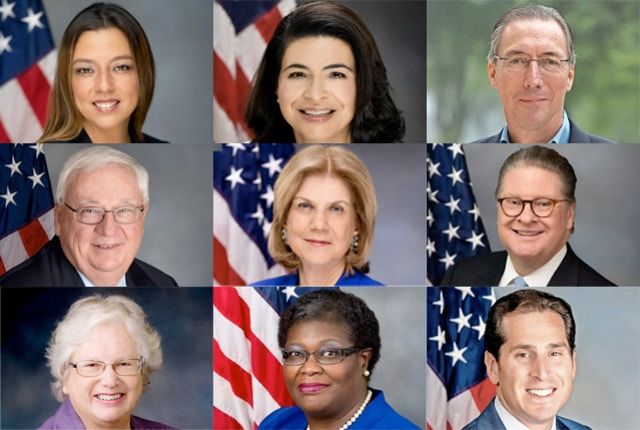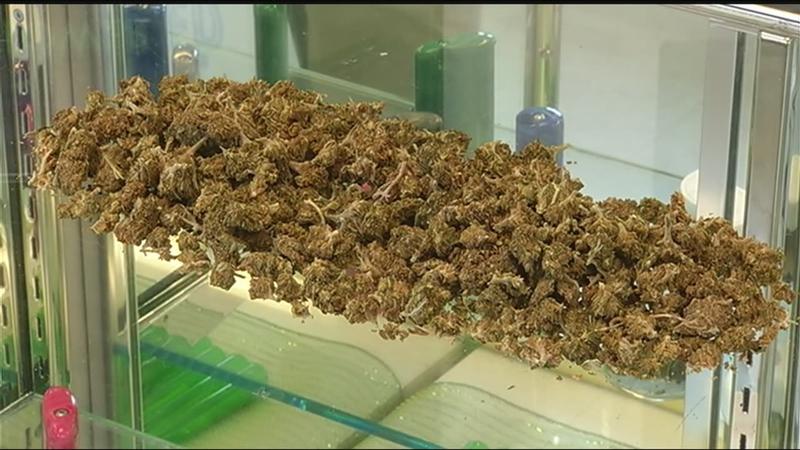NY, you need a new crop of politicians, IMO.
And here is a good list to start with.
 Here Are The State Senate Democrats Responsible For Killing Marijuana Legalization In NY
Here Are The State Senate Democrats Responsible For Killing Marijuana Legalization In NY
By all appearances, this was the year that New York should have legalized marijuana. After decades of near-total Republican control of the State Senate,
Democrats snatched back the chamber in November, locking in a 39-24 majority. A month later, Governor Andrew Cuomo
came out with an emphatic endorsement of legalization, trading years of
"gateway drug" moralizing for a new interest in bringing recreational pot to adult New Yorkers
"once and for all."
The shifting winds in Albany reflected public sentiment, as
poll after
poll has shown a growing majority of state residents—from upstate to the suburbs to New York City—now support legal adult-use marijuana.
So, what happened? On Wednesday, a
last-second push to pass a comprehensive legalization bill crumbled, suffering the same fate as a similar proposal during budget negotiations back in April. Lawmakers blamed the complexity of the issue and a lack of genuine support from the governor. The bill's sponsor, Liz Krueger, said they came close, but
"ran out of time."
It's hard to know just how close they actually came, as the measure didn't make it to the Senate floor for a vote, and was in the final round of amendments when the plug was pulled in the middle of the night. But reports have indicated that an estimated
30 Democratic Senators backed legalization—just two shy of the minimum number needed for passage—while at least nine had expressed misgivings or outright opposition. Of those hold-outs, five are from Long Island, two are from Westchester, and two are from New York City. As the Buffalo News aptly summarized:
"Blame downstate senators."
Following the collapse, Gothamist reached out to each of the nine Democratic Senators believed to be either against legalization, or stubbornly undecided. We asked about the reasons they did not support the bill, whether they were glad that it had ultimately failed, and if they could see themselves supporting legalization in the future.
Those who responded cited the pressure campaign mounted by parent groups and law enforcement officials, concerns about first- and secondhand health risks, and perceived realities within their own districts. Many noted their support for a bill that's been referred to as decriminalization—which has
since passed both houses, downgrading the penalty for between one and two ounces of marijuana from a misdemeanor to a violation, and expunging the records of past low-level offenses. Advocates, and statistics, suggest it will do little to change the frequent police stops that disproportionately target people of color.
More than one Senator we spoke with said they did not want to be identified as the person responsible for blocking legalization in New York State. The responses we received are included below; for those who didn't answer, we've noted their recent comments on the issue, and will update if and when we hear back.
Toby Ann Stavisky (Queens)
In the days leading up to the vote, Stavisky
had said she was
still making up her mind on legalization. On Thursday, the longtime Central Queens representative told us that ultimately she was "not fully on board for a lot of reasons."
"The question of driving under the influence troubled me," she said. "I wasn't pleased with allowing the homegrown six plants. I wasn't pleased with how they were going to distribute the revenue."
Additionally, she noted that roughly 80 percent of her district is Asian-American, a group she considers "quite frankly unalterably opposed" to legalization. (John Liu, an Asian-American State Senator in the adjacent Queens district, supported the bill, and chalked up differences in his chamber to a "generational thing.")
According to Stavisky, the decriminalization approach, which Senate Democrats were still negotiating when we spoke, would be "a better bill for people in terms of marijuana."
Senator Roxanne Persaud (Brooklyn)
After expressing concerns about recreational marijuana use earlier this year, Persaud faced pressure from
some constituents in South Brooklyn to change her mind. Reached by phone on Thursday, she told Gothamist she was focused on decriminalization, and would "prefer not to say" whether she would have voted for legalization if it had been brought to the Senate floor.
Her resistance, she said, was based on potential health risks related to second-hand marijuana smoke and a lack of education surrounding the drug's consumption.
"If you come out of your house and someone is smoking marijuana and you're walking through that smell, it could make you physically ill," Persaud asserted. "No one is talking about that. Everyone is talking about giving the right to someone else to smoke, but we're not telling the people about possible health effects."
Senator Pete Harckham (Westchester)
While serving as a member of Governor Cuomo's administration, Harckham won a tight race for the Hudson Valley seat last November, and now chairs the Senate Committee on Alcoholism and Substance Abuse. Initially noncommittal on legal weed, he'd become more public with his opposition in recent weeks.
"My constituents had many concerns about legalization," he told Gothamist in a statement on Thursday. "Unless there were significant resources dedicated to suburban police departments to address DUI, school districts for education and to help manage risky behaviors and, the public health arena for prevention and treatment, I could not support legalization."
But he also added that the final Senate bill "went a long way toward addressing these concerns, thanks to the efforts of Senator Krueger, and would be a good place to start the discussions next time."
Senator Shelley Mayer (Westchester)
Mayer, a former Assemblywoman, won a special election for the Senate last year, and now represents a portion of Westchester that has been in Democratic hands since 1985—so fear of a primary likely did not factor into her decision here.
Instead, Mayer said her concerns were based on feedback she'd heard from Parent-Teacher Associations and school boards. Specifically, she said she wanted to see a larger focus on discouraging young people from smoking weed, or getting high by other means.
"You can use a vaping tool to smoke dope, and vaping is extremely prevalent already in our schools, including the use of Juul, and I think we need schools and parents to design educational programs," she said. "I was working on making that happen, but we didn't have a final bill."
Asked whether she would have voted against the bill if it was brought to the Senate floor, she responded, "I wouldn't put it that way," before insisting that she was not the deciding vote on legalization.
Jim Gaughran (Long Island)
Like other freshman suburban lawmakers, the full-court press from parents and cops against legal pot seems to have worked on Gaughran.
"I've been getting calls from the schools and the PTAs and law enforcement with concerns,"
he told Gothamist/WNYC in early May. "They say they're already having enough problems with the flavored [nicotine] vaping, and this is the last thing they need."
But Gaughran added that he'd wait to see what the amended proposal looked like before reaching his decision. A spokesperson for his office did not respond to inquiries about whether he would have supported newer versions of the bill.
John Brooks (Long Island)
Brooks was a registered Republican until 2017, and while he caucuses with the Democrats, the Long Island representative has at times been at odds with his party (most recently, he voted to
keep the religious exemption in place for vaccines).
While he did not respond to Gothamist's inquiries,
Brooks told the Buffalo News on Wednesday that he'd heard safety concerns from law enforcement officials and parent groups, which convinced him, "We're not ready for the recreational use at all, and there's really strong and legitimate opposition to it."
Further affirmation of Brooks's anti-drug stance can be found in the screengrab below, which he posted along with a
press release last week celebrating a ban on recreational flamethrowers—"a good example of 'Common Sense' lawmaking," he said.
(NY Senate)
Anna Kaplan (Long Island)
Kaplan earned the seat for Nassau County's 7th District last year, defeating Republican Elaine Phillips after picking up endorsements from Governor Cuomo and Barack Obama. Prior to her election,
she'd offered "tepid support" for marijuana legalization, according to Long Island Now, while also saying she came from a "very conservative family" and thus couldn't advocate for the drug.
In an email to
LoHud earlier this week, a spokesperson for Kaplan said she wasn't ready to support recreational marijuana at this time: "Ultimately, it's important to look at the total picture and the full impact of legalization, and there are still too many public health and safety concerns at this time."
The spokesperson did not respond to Gothamist's requests to elaborate on those health and safety concerns.
Monica Martinez (Long Island)
Another first-term Long Island Democrat, Martinez hasn't revealed much publicly about how she feels on marijuana legalization, beyond the fact that she would not support Krueger's bill. Her office did not respond to Gothamist's inquiries, and the senator literally ran away from a WNYC reporter outside Senate chambers. A spokesperson for Martinez told Gotham Gazette on Monday that she
favors decriminalization and expunging records for people with prior offenses, adding that she would "support the legalization of Marijuana through a statewide referendum."
Todd Kaminsky (Long Island)
Kaminsky, a Long Islander who most recently sponsored the state’s
ambitious Climate Change legislation, seemed as though he was gearing up to support legalization at the start of this year. But last we heard, the second-term Senator and former federal prosecutor was still uncertain on the legislation, telling Gothamist/WNYC last month: “I certainly think having proper safeguards on the road are important. Is there a plan to have a breathalyzer for marijuana? How do you make sure kids don't get their hands on it? Those are all important considerations.”
Like several other lawmakers, Kaminsky said the main constituencies he’d heard from were PTAs and law enforcement groups—both of which were vehemently against legalization. His office did not return multiple requests for comment.
 And more finger pointing at the Senate from Cuomo.
And more finger pointing at the Senate from Cuomo. 
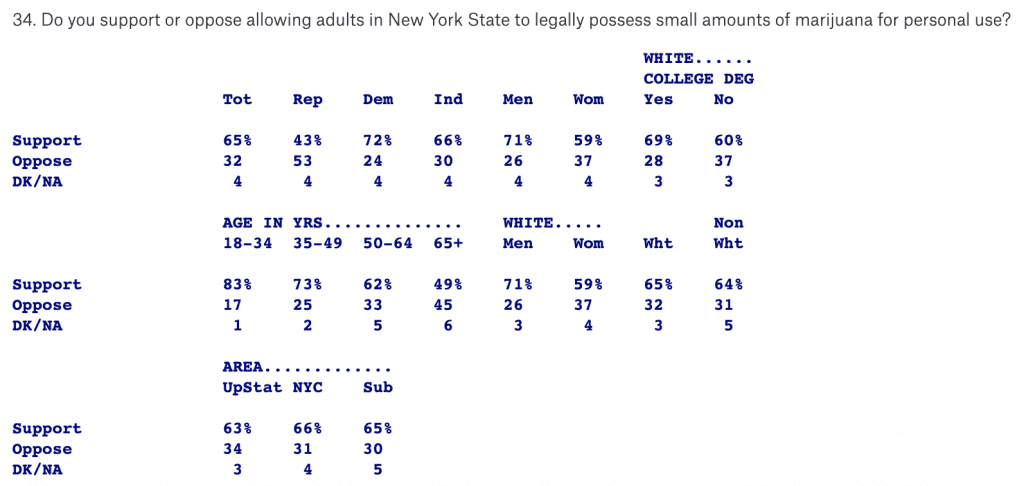
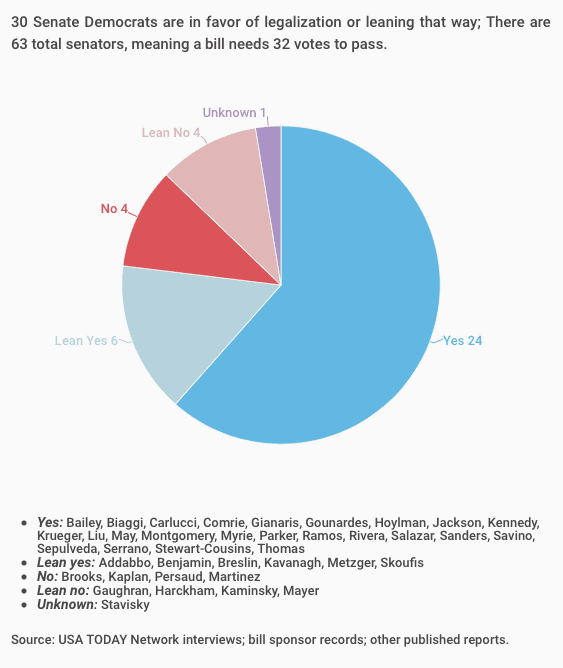
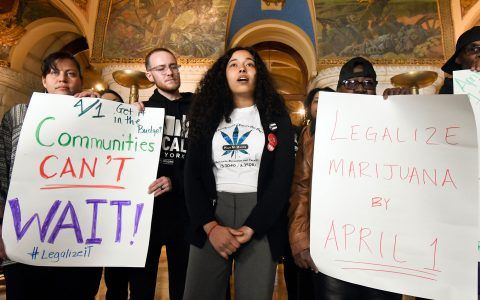




 2019 hopes for legalization are dead.
2019 hopes for legalization are dead. 